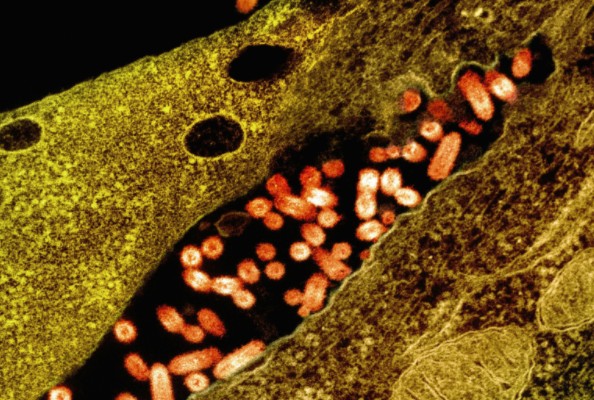
- Details
-
Also available in:

- Parent Category: Knowledge Base
- Hits: 157
Vesicular stomatitis virus (VSV) is a highly promising oncolytic virus capable of preferentially replicating in and lysing tumor cells with defective interferon signaling pathways. Its glycoprotein (VSV-G) is the most commonly used envelope glycoprotein for pseudotyping lentiviral vectors and is widely utilized in gene therapy research. However, the natural receptors of VSV-G (the LDL-R family) are expressed on the surface of nearly all cell types, leading to a lack of targeting specificity for both VSV and pseudotyped lentiviruses. This not only results in the infection of normal cells, causing off-target toxicity, but also reduces the efficacy of precise in vivo treatments. It is known that mutations at the K47 and R354 residues of VSV-G can completely abolish its binding to LDL-R while preserving its fusion activity, offering a potential strategy for engineering targeted VSV-G.

- Details
-
Also available in:

- Parent Category: Knowledge Base
- Hits: 112
CD8 is a membrane-bound glycoprotein widely expressed on cytotoxic T cells (CD8⁺ T cells), certain subsets of natural killer (NK) cells, and specific populations during thymocyte development. It typically exists as a heterodimer of an alpha and a beta chain, functioning as a co-receptor for the T-cell receptor (TCR). It binds to Major Histocompatibility Complex class I (MHC-I) molecules, enhancing the affinity of the TCR for the peptide-MHC complex, thereby promoting downstream signal transduction and T cell activation. CD8 plays a critical role in immune responses and is one of the key effector molecules for the body to clear virus-infected cells and tumor cells. Due to its central role in immune regulation, CD8 has become an important target in tumor immunotherapy, immune cell research, and the exploration of immune regulatory mechanisms.

- Details
-
Also available in:

- Parent Category: Knowledge Base
- Hits: 166
Data from the National Health Commission of China in 2024 shows that the overweight and obesity rates among Chinese adults have reached 34.3% and 16.4%, respectively, meaning more than half of the adult population is overweight. Obesity is a significant risk factor for diabetes, cardiovascular diseases, various cancers, and metabolic syndrome. It is projected that by 2050, over half of the global adult population will be overweight or obese. Faced with the limited effectiveness of current lifestyle interventions and the side effects of existing medications, the development of novel, safe, and effective anti-obesity strategies is urgently needed.

- Details
-
Also available in:

- Parent Category: Knowledge Base
- Hits: 166
Psoriatic arthritis (PsA) is a chronic inflammatory disease affecting multiple tissues, including the skin, joints, and entheses, severely restricting patients' mobility and diminishing their quality of life and work productivity. Conventional disease-modifying antirheumatic drugs (DMARDs) show limited efficacy in some patients. Existing traditional monoclonal antibody (mAb) biologics face challenges due to their large molecular size (approximately 150 kDa) and poor tissue penetration, hindering effective distribution to poorly vascularized tissues like the synovium and entheses. This results in significantly lower drug concentrations in synovial fluid compared to plasma, limiting their therapeutic potential. Studies indicate that only about one-third of patients achieve minimal disease activity (MDA) within six months of initiating biologic or targeted synthetic DMARDs. Furthermore, PsA pathogenesis is closely linked to the interleukin-17 (IL-17) cytokine family. Both IL-17A and IL-17F are overexpressed in lesional tissues and form homodimers and heterodimers that collectively drive inflammation. Inhibiting only a single cytokine is often insufficient for optimal therapeutic outcomes. Therefore, developing novel antibody therapies that combine dual-target inhibition with enhanced tissue penetration is crucial for overcoming current treatment bottlenecks in PsA.





